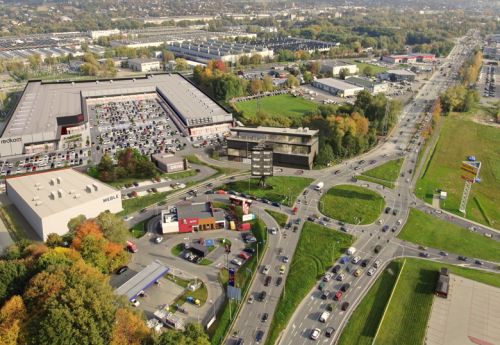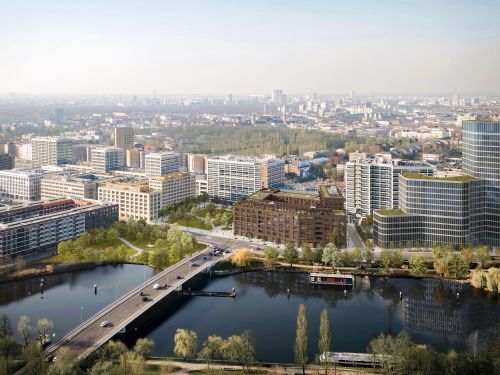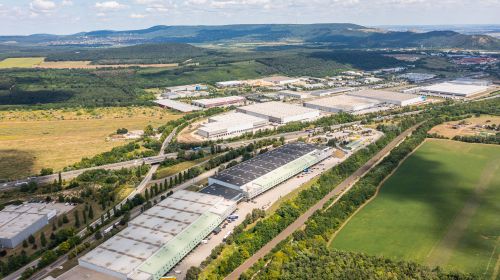The world after Brexit
Stock market reportThe collapse of investment bank Lehman Brothers in 2007 and the loss of the United States’ AAA rating in 2011 were the two events that had had the most serious impact on the wallets of stock exchange investors globally – until now. On June 24th, 2016 those two calamities were joined by the choice of the people of Great Britain to exit from the European Union. The decision of 52 pct of voters (with a very high turnout – 72 pct) was a complete surprise. A few days before the vote, the opinion polls were pointing to the Remain camp winning the day – and this is clearly what the stock exchanges were anticipating. During the night of the count, however, as it became apparent that Britain had voted to leave, a tsunami was unleashed, starting from the Asian stock exchanges. Post-referendum Friday was a day of chaos, suspended quotations and a huge stock sell-off on all the main stock exchanges. Standard & Poor’s calculated that almost USD 2 bln had evaporated from global stock exchanges over two sessions – those on Friday and Saturday. Investors rushed to stash their funds in safe havens, so the prices of American and German bonds increased as well as the price of gold. An attempt at a cool assessment of the future did eventually calm the situation – the procedure for Great Britain’s exit will take two years, provided it is ever triggered. Such a decision would be made in the autumn at the earliest. However, the fact is that with revised forecasts for world economic growth (the UK is the world’s fourth largest economy), global interest rates will not grow as fast as they would have if their decision had been different. Even more so considering the fact that the US federal reserve has lowered its forecasts for economic growth over the next few years. In the face of a mixed macro situation, the Brexit is clearly a significant risk factor – the uncertainty on the financial markets and the amplitude of share price fluctuations will certainly increase. The pricing on the Warsaw stock exchange in the last six weeks reflected the situation. The WIG20 fell by 3.7 pct, while the WIG broad market index was down slightly less, by 3.1 pct. WIG-Developers defended its spring position, losing only 2.1 pct, which confirms investors’ faith in the good foundations of the brand and the continuously high demand for new apartments and commercial space. Construction companies did much worse: WIG-Bud lost as much as 10 pct. Thus the downward trend, which has lasted since the end of the first quarter, continues. Since the beginning of the year, almost 15 pct has been wiped off the value of WIG-Bud. This could partly result from the general condition of the construction industry. According to the Central Statistical Office (GUS), the value of construction and assembly production in the first five months of 2016 has fallen since 2015. The number of building permits has been declining, which has become a trend now, following the weak figures for 2015. This can partly be explained as a slowdown resulting from the availability of EU funds and partly from the suspension of investment due to the political situation and changes in the law. However, not everyone is complaining – or at least their health isn’t showing any signs of deterioration. Shares in Budimex admittedly depreciated, but the news from the stock exchange giant should instil optimism, particularly when it comes to its activity in the field of road construction. The size of its order portfolio amounted to PLN 9.1 bln in Q1 – higher than at the end of 2014. The stability of the company’s liquidity is another plus, as its Q1 figures surpassed analysts’ expectations (a profit of PLN 51 mln with revenue of PLN 988 mln). The last few weeks saw some relief for the share price of PBG, due to its arrangements with creditors becoming legally binding, turning a new page in the company’s operations. PBG’s bankruptcy had been under negotiation since June 2012. Its Q1 results also helped to improve the atmosphere around the company. PBG enjoyed a positive net result (PLN 1.8 mln) for the first time in two years and now has quite a sizeable order portfolio – PLN 4.6 bln. Polimex-Mostostal is also profitable at the moment (PLN 26 mln), even though the company has discovered technical shortcomings in its flagship project – the Elektrownia Kozienice power plant, which could cost it as much as PLN 130 mln.
Sensitive neighbours
The Hungarian BUX index in Budapest turned out to be oddly resistant to the Brexit turmoil. A short-term decline in the index’s value lowered it to its March levels, before the index underwent a sharp upward movement. The performance of the PX 50 index in Prague, however, was much worse, losing almost 10 pct over one month leaving it at its lowest level since the beginning of the decade.





















































